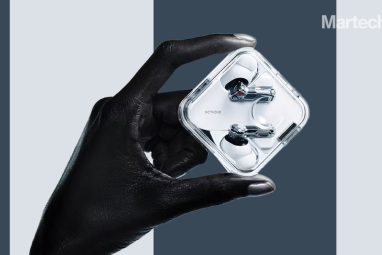82% Can’t Recall Positive Example of Frictionless CX: IFS Study
Businesses are missing out on a significant opportunity to fix internal processes and address the root causes of customer experience issues in the wake of the pandemic, research from enterprise software specialist IFS has revealed. The global study, which surveyed 1,700+ executives and 12,000+ consumers, uncovered that despite the majority of companies (66 per cent) […]
Topics

Businesses are missing out on a significant opportunity to fix internal processes and address the root causes of customer experience issues in the wake of the pandemic, research from enterprise software specialist IFS has revealed.
The global study, which surveyed 1,700+ executives and 12,000+ consumers, uncovered that despite the majority of companies (66 per cent) investing upwards of $250,000 each year evaluating the customer experience through Net Promoter Scores, reviews, and customer satisfaction surveys, 82 per cent were unable to recall a single positive example of a recent frictionless customer experience-showing current customer experience processes do little more than wallpaper over the cracks.
Every business has those moments when they get judged, when they either delight or disappoint. IFS calls these the Moments of Service. While much attention is paid to customer service, the inflection points that occur throughout the lifecycle of an operation and encompass processes, technology solutions, and human coordination are even more important to business outcomes, yet even more frequently overlooked. Only by careful orchestration of these components can companies deliver a quality `Moment of Service‘, in which everything comes together to create a positive result for a customer.
- 79 per cent of businesses have invested time and resources in identifying where these inflection points are when problems are identified
- Nearly a third of managers (29 per cent) admitted to reporting them but not taking action
- 18 per cent revealed they were too busy to report issues unless urgent
- Just 15 per cent said they proactively look to pre-empt problems
This begs the question of how companies can expect customer experience and loyalty to improve without taking necessary action, leaving revenue and market share on the table.
With 90 per cent of businesses stating they have re-engineered or are reengineering their business to ensure customer touchpoints and stages come together for better moments of service, it is vital that companies ensure processes are optimised across each of these inflection points to mitigate issues and fuel growth.
Also Read: Using AI for Video Marketing
For enterprises that fail at the moment of service, the financial ramifications are significant. A quarter of consumer respondents stated they would never engage with a brand again after just one bad experience, while over half (52 per cent) would abandon a company after two to three. IFS also sought to examine the impact of negative experiences on wider brand perception and uncovered that 58 per cent of consumers are very likely or somewhat likely to share their negative perceptions with their network, highlighting how easily a bad interaction can be amplified.
However, it’s not all doom and gloom. Over half (52 per cent) of consumers are inclined to leave a positive review, underscoring just how much can be gained by keeping an open dialogue with customers and focusing on delivering an exceptional brand experience.
 “When it comes to delivering a positive customer experience, businesses have a limited opportunity to get it right. And if they neglect a single inflection point, they are gambling with their outcomes, including profits and margins,” IFS Chief Customer Officer Michael Ouissi said. “There are many points where you can either delight or disappoint a customer across the value chain and it is clear from these findings that consumers are willing to voice their opinions either way. As more and more businesses look to service provision as a key competitive differentiator, running the right enterprise software-engineered for the moment of service and capable of orchestrating a multitude of people, assets and customers will separate the winners from the losers.
“When it comes to delivering a positive customer experience, businesses have a limited opportunity to get it right. And if they neglect a single inflection point, they are gambling with their outcomes, including profits and margins,” IFS Chief Customer Officer Michael Ouissi said. “There are many points where you can either delight or disappoint a customer across the value chain and it is clear from these findings that consumers are willing to voice their opinions either way. As more and more businesses look to service provision as a key competitive differentiator, running the right enterprise software-engineered for the moment of service and capable of orchestrating a multitude of people, assets and customers will separate the winners from the losers.
“To achieve this, enterprises must rethink how they architect their operations, and become a `composable enterprise’ that harnesses a combination of packaged functions and technologies to deliver outcomes and adapt to the pace of business.”
The composable enterprise
Businesses across industries need to shift to selling services and/or outcomes rather than just products. The moment of service is the first step to designing for service and becoming customer driven. With the moment of service in mind, organisations can orchestrate people, assets, and processes and define the application landscape that will best support them on the journey to delivering that great moment of service, repeatedly and confidently.
This means a new way of buying software. Not a wholesale buying approach but instead a composable one where organisations can shift away from left-to-right value chain planning.
This composability calls for a new way of running a business and involves taking the building blocks of a business (functions, processes, suppliers, technology etc.) along with their underpinning technologies and composing them like Lego Bricks. A composable model empowers organisations to choose the best component needed for their business, allowing them to be more flexible and more open in order to adapt to new potential revenue opportunities.






